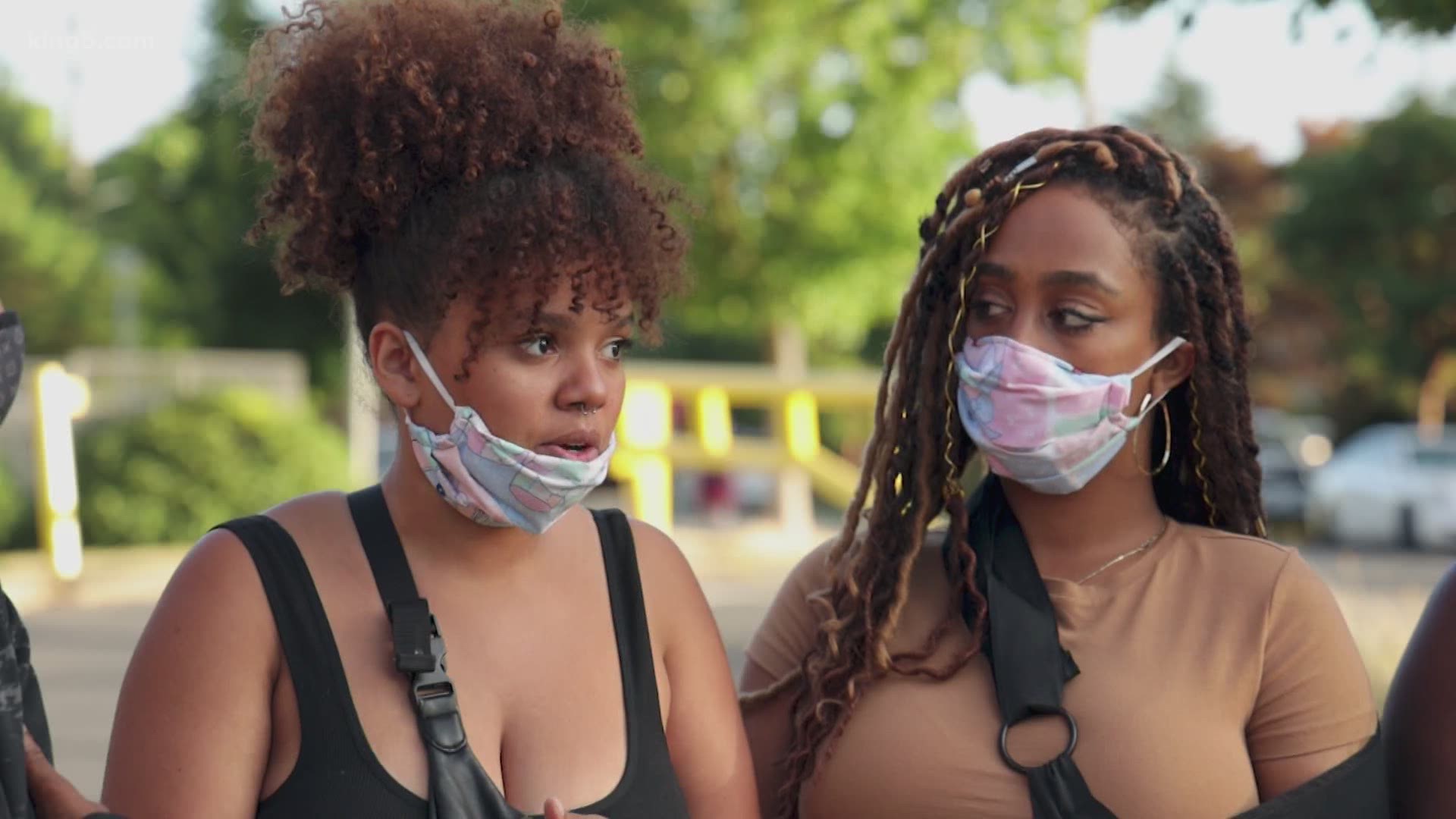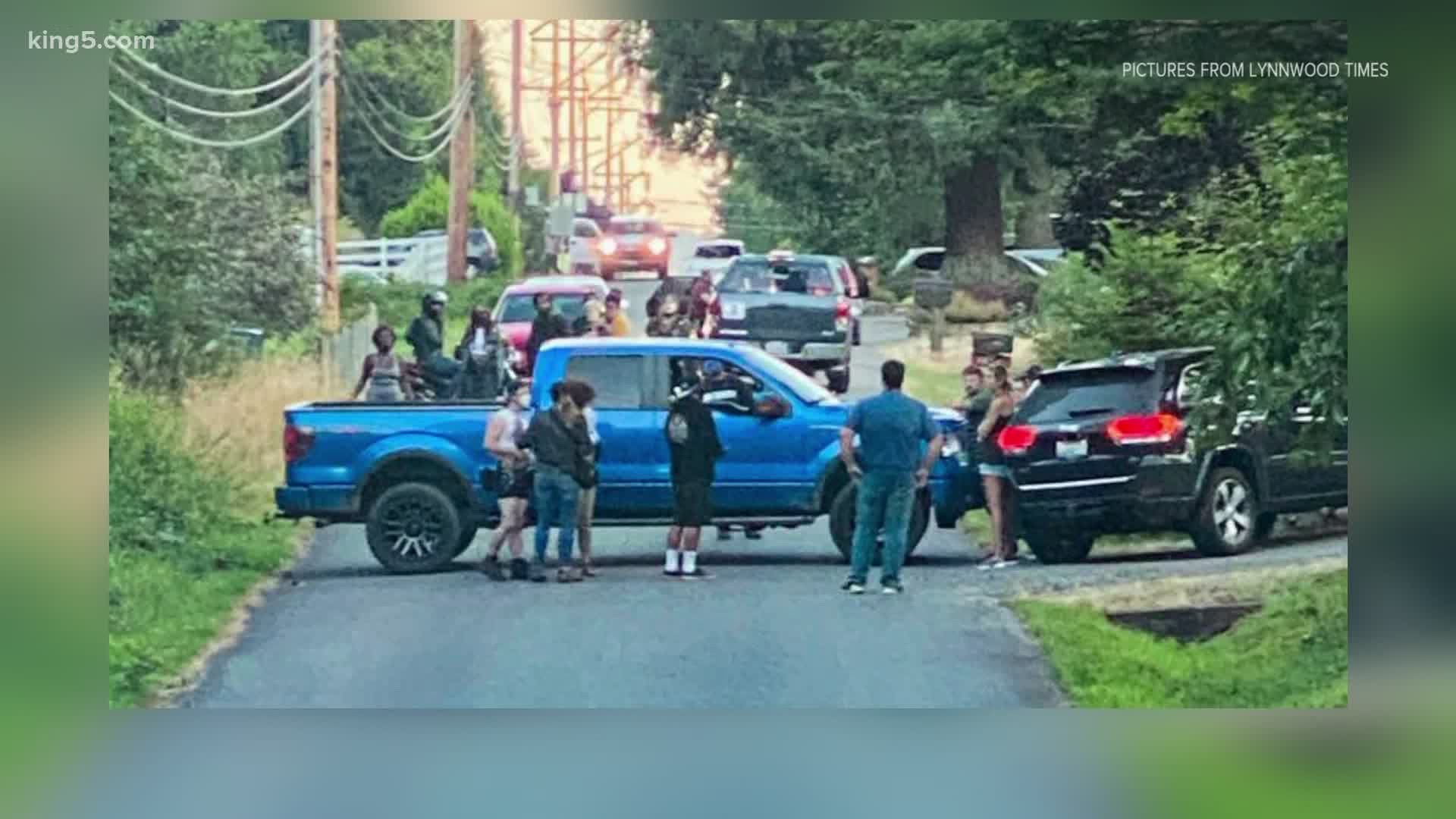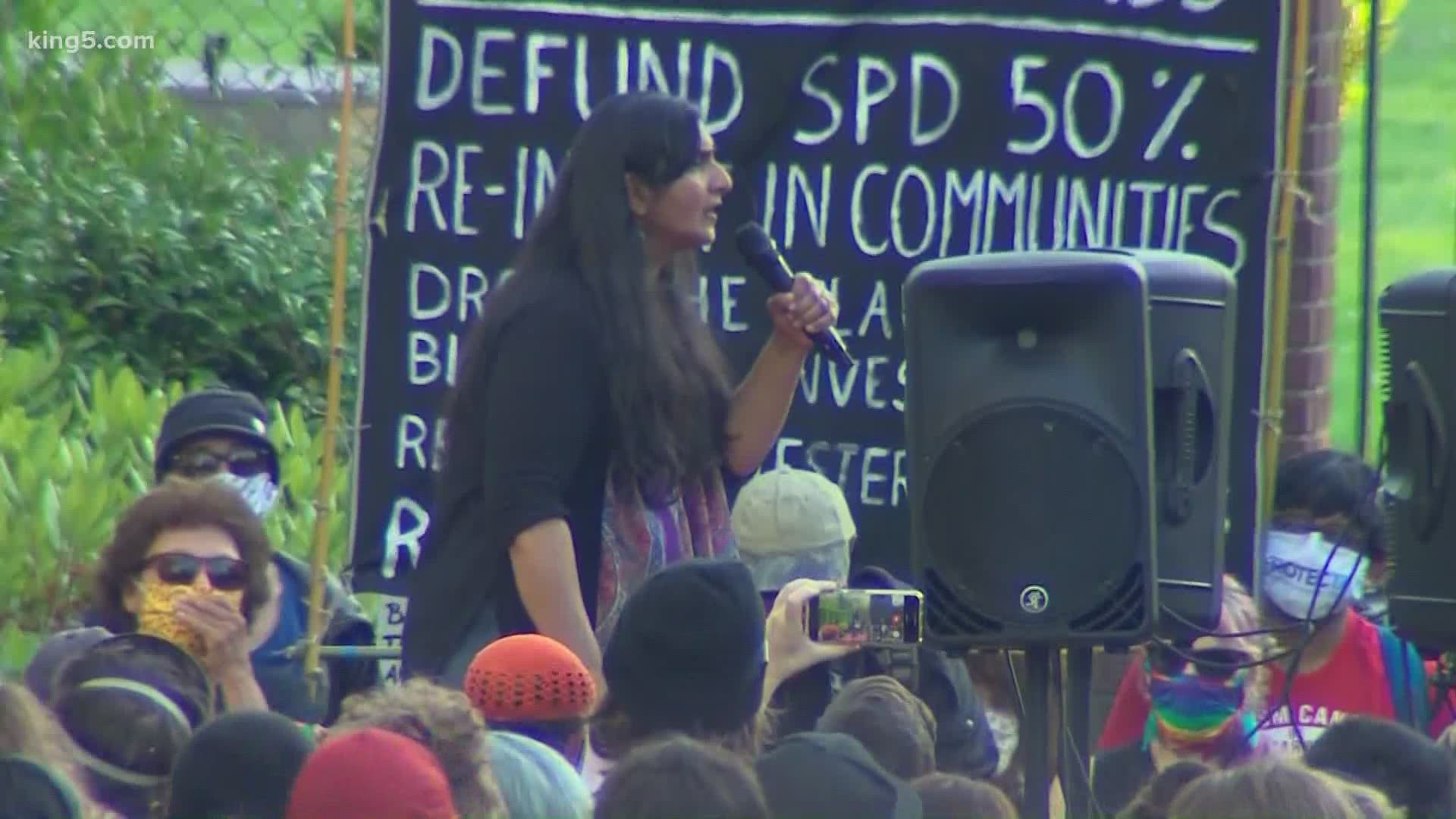SEATTLE — Seattle Police Chief Carmen Best said a “large group of aggressive protestors” targeted her house late Saturday night in Snohomish County.
In a letter to Seattle City Council, Best said her neighbors were concerned by the group, but “they were successful in ensuring the crowd was not able to trespass or engage in other illegal behavior in the area, despite repeated attempts to do so.”
Best urged the city council to “stand up for what is right” and asked council members to call for an end to these tactics used to target elected officials and civil servants.
Best said the actions are “out of line with and go against every democratic principle that guides our nation.” Click here to read Best’s full letter to Seattle City Council.
Protesters that were there that night said they are disappointed in Best’s letter. They said they disagree that they were aggressive, and instead, said the aggressors were the neighbors Best praised.
“All we were doing was walking and they met us with guns, I don’t know who the aggressor is at that point, but I don't think it's us,” said Nicole Gitaka, a demonstrator with “Every Day March.”
Gitaka and her fellow protesters said less than 100 people went to the Snohomish County neighborhood and that they did not go there to destroy or cause trouble -- they wanted to ask the chief some questions regarding the Black Lives Matter movement in Seattle and the police departments use of crowd control measures.
The group said they were met by Best’s neighbors who blocked the road and displayed guns. They said they attempted to talk to the neighbors, explain what they were doing there and get them to move out of the road but they reportedly refused. The protesters ended up leaving the neighborhood when they felt unsafe.
“Nobody from us approached that situation with aggression, nobody went there like were going to mess up the neighborhood,” said Gitaka. “Our main objective, the only thing we're going to do was march down to Chief Best’s house, make some noise, ask some questions, and go, that’s what was going to happen.”
For the most part, council members did not publicly respond to Best's request, except Seattle City Councilmember Tammy Morales who objected to Best's neighbors confronting the protesters.
"I take exception to the response by our police chief who celebrated that her neighbors met with these young people with guns," said Morales.
Protesting at leaders' homes has been happening for years, but the protests have grown in recent months, in the wake of the national protests of the killing of George Floyd by police officers in Minneapolis and amid the calls in Seattle to drastically cut the police budget and reinvest those resources into other services.
Last week, local tribes denounced the continued protests at the home of Councilmember Debora Juarez, who is one of the two councilmembers who did not commit to a 50% defunding of police.
Juarez, who is a member of the Blackfeet tribe, is the only Native American councilmember.
In June, Seattle City Councilmember Kshama Sawant joined a large group of protesters outside the now-disbanded “Capitol Hill Organized Protest” zone before leading a march to Mayor Jenny Durkan’s home.
In a statement, Snohomish County Sheriff Adam Fortney said he was notified of a group of about 200 protesters at Best’s residence in unincorporated Snohomish County around 8:30 p.m. Saturday. He said he spoke with Best on the phone, who was not home at the time.
“I assured [Best] that the Snohomish County Sheriff’s Office would deploy whatever resources were necessary to protect her, her family, and her property,” Fortney said in the statement. “I am pleased to report this group decided to disperse and there were no other incidents [Saturday night].
Fortney added that the Snohomish County Sheriff’s Office has been “supportive and accommodating” to all peaceful demonstrations, but said protesters targeting an individual’s home is a “bullying tactic.”
“If this group or any other group wants to protest the government, we would ask they do so at a government building and not at any individual’s private residence,” he wrote.
This is not the first time protesters targeted the homes of law enforcement or elected officials.
A Puyallup Police Department officer recently found a derogatory message written in chalk in front of his home. Puyallup Police Chief Scott Engle posted a message on Facebook defending the officer, describing him as a U.S. Army veteran, husband, father, and an officer who wants to serve and protect.
Engle went on to say the police and community need each other, adding, “We are all in this together.”



